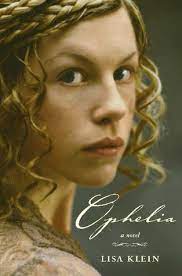“OPHELIA”: REVISION, DYNAMICS, AND CLOSURE
“Ophelia”:
Ophelia is a force unto herself. Since Shakespeare wrote “Hamlet” over four centuries ago (most likely between 1599-1602) the doomed sister of Laertes, wretched daughter of Polonius, and ill-fated love of Hamlet has been captivating readers’ imaginations. She’s become an archetype of sorts, characterized by madness and beauty and fleetingness. She’s both the artist and the muse, an idol and a martyr, the pure and the unholy. Yet despite this, Ophelia is never defined by her own merits or on her own terms, perpetually remembered by her relationships to others.
In 2006, Lisa Klein attempted to remedy this problem with the release of her novel “Ophelia”, which followed the plot of Shakespeare’s play through the eyes of its forgotten heroine.
As briefly as possible, “Hamlet” is the story of the prince of Denmark, who resides in Elsinore with his mother Gertrude, his father, the King, and uncle, Claudius. The court begins to fall into ruin when the King dies under mysterious circumstances, prompting Gertrude to marry Cladius and Cladius to take the throne. When Hamlet is visited (or believes himself to be visited) by the ghost of his father, he vows revenge against Claudius, whom he believes to be guilty. In this quest for revenge, Hamlet hurts those around him and begins to descend into madness (or feigns madness depending on how you interpret it.) There is no happy resolution to be had for Elsinore, as the play sees the ruin of the royal family and the kingdom as a whole.

Spoilers in this paragraph– For those interested in how deep the quest for revenge goes, here’s a list of casualties. The King (cause of death unknown), Polonius (accidentally killed by Hamlet), Ophelia (who drowns herself as Hamlet grows progressively madder), Gertrude (who drinks poison intended for Hamlet), Cladius (killed directly by Hamlet), Laertes (fatally wounded by Hamlet in a duel), and Hamlet (fatally wounded by Laertes during the same duel). The only survivor of the main cast is Horatio, Hamlet’s best friend who delivers the line: “Good night sweet prince…”- Spoilers end.
Klein immediately makes it clear that her Ophelia is different from the one we remember. Backstory is given to Ophelia’s childhood, exploring what it was like to grow up motherless and a pawn in her father’s game, and establishes Ophelia, Hamlet, Laertes, and Horatio as a group of childhood friends. The action of the narrative starts when Ophelia becomes a lady-in-waiting to Queen Gertrude, a move her father hopes will bring the family prominence. In the castle, Ophelia sees the power dynamics from her childhood played out on a much larger scale. All of the men in the castle are arrogant, dismissive, and cruel towards the ladies. What was casual and competitive in “Hamlet” becomes dangerous and volatile in “Ophelia”.
The antics of Rosencrantz and Guildenstern are no longer funny, they’re cruel and spiteful. Laertes isn’t protecting his sister, he’s controlling her. Polonius does not have his daughter’s best wishes at heart, he wants to use her. Hamlet is no longer charming and interesting, he’s unreliable and paranoid.
It’s interesting to see Ophelia’s current relationships as an extension of her childhood ones. We see the way she grows disillusioned, and realizes that she no longer recognizes her friends. While this works to establish a dynamic between the characters, it also creates some uncomfortable questions.
Laertes is older than Ophelia, and Horatio and Hamlet are younger than Laertes but older than Ophelia. Early scenes show the four playing games together, with Hamlet acting as another brotherly figure to Ophelia. At the end of the book, Ophelia is only sixteen, and Hamlet is given to be in his twenties. While this age-gap is not concerning in the time period of the novel, it’s off-putting and wrong now. It makes it harder for the audience to validate and support the relationship. This is only compounded by Hamlet’s introduction as something akin to a sibling. Had the story used this to show just how problematic Hamlet is, these details would make sense, or at least be acknowledged in a meaningful way. However, at the end of the story, Ophelia is still in love with Hamlet, excusing the strange power imbalance between the two and undermining the self-actualization of Ophelia’s character arc.
The fact that the pair get married in secret makes it even worse, as Ophelia seems to be trapped by a character the audience is supposed to rally for. Hamlet falls apart completely shortly after their marriage, often yelling at Ophelia and disregarding her when she attempts to talk to him. The book may pin his worse behavior on his lust for revenge, but in reality, it is an extension of the traits he has already shown. Ophelia is then relegated to having to ‘fix’ a broken love in her life rather than realizing how she has been used.
This is not the only missed opportunity in Ophelia’s character. While the story sees Ophelia strengthen her relationship with women- like Gertrude, and a local healing woman named Metchild- it also sees her compete with another lady of the court named Cristiana. Worse, Cristiana and Ophelia’s conflict revolves around the men in the court and their marriage prospects. Cristiana is demonized for a large portion of the novel while Ophelia is portrayed as being above the pettiness of it all. Here is the ideal opportunity for Ophelia to understand how she has been turned against potential friends by the men in her life, but instead, she is simply made ‘different’ and above these concerns.
The ultimate fumble of the narrative comes near the end. Hamlet is now almost completely lost to insanity, and the tension in the castle threatens to spill into violence. Ophelia, realizing she is pregnant, decides to flee for both her own safety and the safety of her unborn child. With help from Metchild, Ophelia concocts a sleeping draught and pretends to drown. Horatio smuggles her out of the castle after the funeral, and she is awoken from her sleep to find that Gertrude knows of her plot. Wanting Ophelia to get to safety, Gertrude gives her money and wishes her luck. Prepared, Ophelia ‘gets thee to a nunnery’ where she gives birth to a baby boy whom she names Hamlet.
So the point of “Ophelia” is that the kingdom is unfair, and many of the men in power are corrupt and horrible. Further, Ophelia flees because Hamlet can no longer recognize her, and clearly does not care for her. Then, it is Metchild and Gertrude and the nuns at the monastery who support Ophelia and take care of her. All of this is underscored by Ophelia’s growing confidence in herself. So why does she name the child Hamlet?
It makes more sense from a character and message standpoint to have Ophelia name her baby after one of the women in her life. A name like Gerald/Geralt, or Meck or Mickael. The child needs a name that shows Ophelia’s development, proof that she has grown to respect herself and is ready to start a new life separate from the pains of Elsinore.
Naming the baby Hamlet does nothing but show that Ophelia is still defined by the men in her life, or the traditional power structures of her life. This narrative inconsistency isn’t simply a weak plot point, it undoes what the whole novel set out to do- prove that Ophelia was her own person.
As strong as the premise is, Ophelia never fully accepts its own ideas or gives it’s protagonist the agency she deserves. The changed perspective certainly makes “Hamlet” a more complex read, but on its own, it is another average historical fiction novel grappling with sexism. Still, for those trying to get into Shakespeare, or interested in expanding their understanding of the Bard’s work, Klein’s novel may still be a worthwhile endeavor.
5/10 would not interact with Elsinore again
Further breakdown:
Writing Quality: 7/10 Enjoyability: 5/10
Pace: 5/10 Visual elements: N/A
Plot development: 6/10 Insightfulness: 5/10
Characters: 6/10


